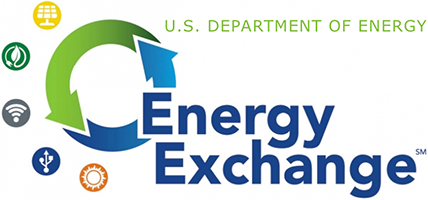Pittsburgh, PA

This session will be presented in two parts: a 30-minute presentation from speakers and a 60-minute case study style working session. In Part 1, speakers will walk through how the Federal Building Performance Standard and electrification can be incorporated into your organization's portfolio planning efforts to offer the greatest benefit to your organization's mission and make-up. Speakers will provide example factors to consider and develop the most impactful strategy, including, but not limited to, carbon reduction and ROI, EVSE infrastructure and available capacity, required fuel switching, and the importance of energy conservation. In Part 2, session participants will work through a case study and project decisions to see how close they can get the sample facility to be fully electrified. Session leaders will then walk through the actual project and the decision-making process, including challenges and best practices.
Instructors
Erik Mets, Senior Building Energy Research Engineer, Pacific Northwest National Laboratory Read Bio
As a Senior Building Energy Research Engineer at the Pacific Northwest National Laboratory (PNNL) Erik has been focused on improving the built environment and reducing its impact. This has included participation in the Federal Energy Management Program's Rulemaking, Audits, and Healthy Buildings efforts as well as code development including contributions to the reference manual for ASHRAE Standard 90.1 and the development of Standard 240P Quantification of Life Cycle Greenhouse Gas Emissions of Buildings. Erik is also considered a decarbonization subject matter expert and thought leader, contributing to the plans to decarbonize the PNNL campus through their NZERO projects. Prior to Joining PNNL Erik directed the technical aspects of energy and sustainability at a boutique consulting firm, focusing on bringing implementable solutions to developers, building operators and corporations. He holds a BS in Physics and Astrophysics from the University of Michigan and a MS degree in Applied Physics from Columbia University.
Emily Conner, Senior Sustainability Program Manager, General Services Administration Read Bio
Emily Conner is a Senior Sustainability Program Manager in the General Services Administration's Public Building Services (PBS) Climate & Sustainability Division (C&S). She has implemented sustainability and energy policy and reporting through her work at three agencies over the last 9 years, including GSA, FBI, and FAA. Emily helps lead the C&S Division's greenhouse gas and climate risk programs, which produces the annual energy management report and recently helped launch the PBS Sustainability Implementation Plans. She recently led the effort to develop a Framework for Building Performance Standard (BPS) Electrification Prioritization, which was used to create an initial list of applicable buildings for electrification and identify feasibility to meet the 30% BPS goal as part of GSA's FY24 Sustainability Strategic Plan. Emily has a bachelor's degree in interdisciplinary studies from American University and a Master of Environmental Management degree with a focus in Energy & Environment from Duke University.
Learning Objectives
Upon completion of this course, attendees will be able to:
- Identify the benefits of electrifying a federal facility;
- Identify technologies and strategies to help federal facilities meet the goals stated in the Federal Building Performance Standard, Inflation Reduction Act, and EO 14057;
- Recognize action items and lessons learned from large scale electrification efforts by a federal agency;
- Select viable decisions on electrifying a federal facility.









